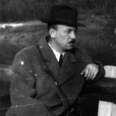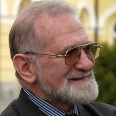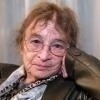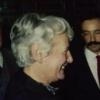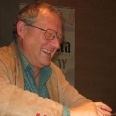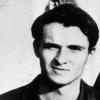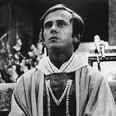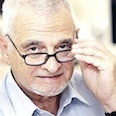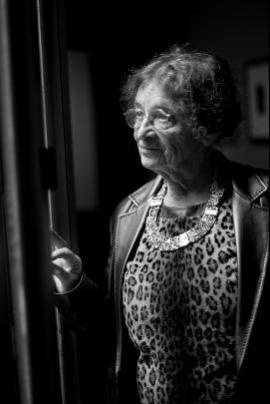
Ágnes Heller
Born in 1929 into a Jewish family of Austrian descent, Heller, since she was a child, had to live with the fear of racial persecutions. Her father was a musician and writer and instilled in Ágnes’ soul a great passion for art, music and culture in general. Her mother played a more normative role. Together they would live the tragic experience of the ghetto of Budapest and its liberation with the Todesmarsch (death march) where hundreds of people died. Her father was discovered while helping the fleeing Jews and he was deported and murdered in Auschwitz in 1943.
After enlisting at the Faculty of Medicine, she changed dramatically course in 1947, after attending a lesson of György Lukács, the most influential and important thinker of those years’ Europe. Shortly, she became Lukács’ closest aide, and in 1947 she became an associate professor in his department. Together with a group of philosophers who gathered around Lukács’ ideas of a reforming Marxism, Heller founded the School of Budapest, which played a major role in the research about a humanistic rediscovery of Marx. Yet, very soon she became a target of the orthodoxy of the Soviet communist party, which reacted violently to this attempt to critically re-read Marx by stripping his thought of its overly ideological embellishments.
Demoted from her academic charges together with Lukács for political reasons after the Hungarian Revolution, she spent many years teaching in high schools and all possibility of publishing her thought was forbidden to her.
In 1968, she protested against the Soviet invasion of Czechoslovakia, and she faced a new political and policing crackdown. In 1973, with a measure targeting her on a personal basis, the party authorities deprived her again of her academic roles.
In 1977, she emigrated to Australia together with her husband Fehér Ferenc, he, too, one of the main exponents of the School of Budapest. Four years later, though, she was invited to teach Political Philosophy at the New School of New York, de facto assuming the scholarship that had previously been held by Hannah Arendt. And in this American time, she became one of the most famous thinkers, holding conferences and courses with the most important philosophers in the world.
After the fall of the Berlin Wall in 1989, she got back to her native Hungary where she was appointed a member of the Hungarian Academy of Sciences. In 1995, she received the Szechenyi National Prize in Hungary and the Hannah Arendt Prize in Bremen. She received the graduation ad honorem from ‘La Trobe University’ of Melbourne in 1996 and the University of Buenos Aires in 1997. She also received, in 2010 the Goethe Medal, the Concordia prize in Vienna in 2012, the Carl von Ossietzky prize in Oldenburg in 2012, the graduation honoris causa from the University of Innsbruck, the Willy Brandt International Prize in Berlin and the Manés Sperber Prize 2017 in Vienna. Today she is one of the strongest and heeded critical voices against the Hungarian nationalist government of Viktor Orbán all over Europe.
We thank Prof. Laura Boella, Full Professor of Moral Philosophy at the Università degli Studi di Milano, for this biography.














.jpg)

